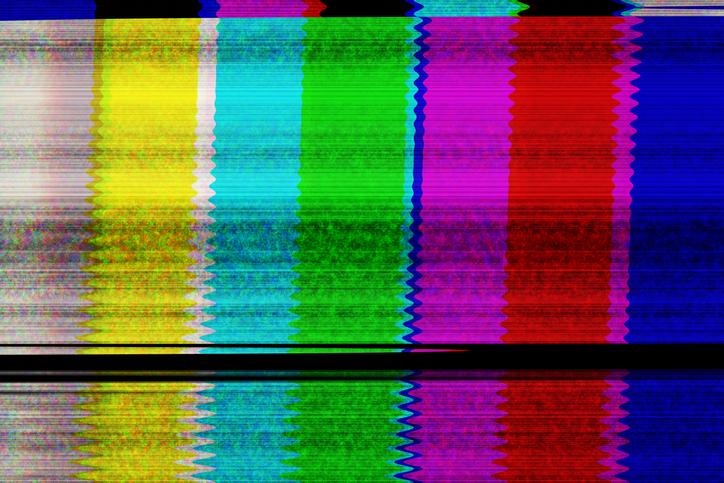Asia–Pacific broadcasting review misses the point
Posted By Geoff Heriot on November 21, 2019 @ 06:00

There is something a little disconcerting about the work done jointly by the Department of Communications and the Arts and the Department of Foreign Affairs and Trade in their report of the review of Australian broadcasting services in the Asia–Pacific [1]. Not because the report lacks informational worth, but for its underlying premise and the hermetic sense it conveys about Australia’s place in Asia and the Pacific.
Read the detail and you’ll find that Australia is located 3,200 kilometres from Papua New Guinea—a claim that is broadly correct if you’re standing in Melbourne. From Australia’s northernmost population centre of Saibai Island, on the other hand, it is only four kilometres to the PNG mainland—roughly the distance across Port Phillip Heads from Point Lonsdale to Point Nepean.
Similarly, the report gives the distance from Australia to Indonesia as 4,000–7,000 kilometres when the city of Merauke, with a population almost double that of Darwin, is less than 600 kilometres from Nhulunbuy in East Arnhem Land, and about 1,100 kilometres from Darwin itself.
This is not intended as nit-picking criticism but an indication of how, despite the value of industry and market data in the report, it expresses a lack of situational awareness. Partly this may be a consequence of terms of reference that offered little purposive guidance; it’s also partly due to the report’s narrow frame of economic analysis.
The report provides a definition of ‘economic benefits’ to be derived from multi-technology broadcasting and content provision to Asia–Pacific territories. Direct benefits accrue to the broadcasters concerned, and to other Australian industries as a result of those broadcasts. But the report offers no definition of ‘indirect strategic policy objectives’—a rather troubling omission by the departments responsible for Australia’s media policy and foreign policy.
It is a form of inverted logic to preference economic over national strategic perspectives when the function of the former stands as an equal pillar with the latter. In this respect, the underlying tone of the report is so ‘end of history’, at a time when the nation is having to rethink the fundamental dynamics of its international engagement.
The prism of economic analysis narrows to a point of blindness when the report claims that Australian governments have funded international broadcasting services as a matter of market failure—that is, in recognition of the risk that Australian broadcasters would underinvest in Asia–Pacific broadcasting without public funding. There’s no mention here of strategic purpose—let alone the role of international broadcasting as sovereign infrastructure—apart from a general (and reasonable) desire to build partnerships between countries in the region.
It’s true that, in 1931, the commercial broadcaster Amalgamated Wireless (Australasia) established the ‘Voice of Australia’ as this country’s first short-lived English-language international radio service. For a few years, AWA managed to deliver an audible signal to Europe, using the call sign of a laughing kookaburra (just as Radio Australia would do in later decades). Similarly, the Seven Network briefly and unsuccessfully operated an international television channel acquired from the ABC in the mid-1990s. Both were commercial services undertaken for corporate self-interest.
It’s inappropriate to equate commercial failure with a notion of the market as anything more than one critical determinant of national sovereignty. From the outset, government intervention in the marketplace of ideas occurred with strategic purpose. In 1939, prompted by the British government, Prime Minister Robert Menzies established what became a multilingual international shortwave service as an instrument of political warfare.
In the 1950s, the Cold War Planning Committee invested in Radio Australia (and the establishment of the ABC’s news operations in Asia) to complement British and US campaigns against communism. In 1963, the government strengthened its political focus on Indonesia and Southeast Asia by building a powerful transmission facility in Darwin. In the 1980s, Radio Australia elevated the Southwest Pacific region as a broadcast priority, following the resolution of Prime Minister Malcolm Fraser that Australia had a responsibility to keep the region free from influence of the Soviet Union.
And in 1990, the departments of Communications and Foreign Affairs jointly sponsored a cabinet submission on Radio Australia, which included a summation that could have been written for the ages:
Our strategic interests are arguably greatest in the Pacific and South East Asia, our economic interests greater in North Asia. Moreover, in the totality of our interests, some countries in North Asia, such as China, are more important to us than many of those in South East Asia or the Pacific … However, in terms of impact alone, the South Pacific is crucial.
That’s where the relevant discussion should begin. The review of broadcasting defers to the government’s yet-to-be-released soft power review [2] for consideration of potential ‘external benefits’ of international broadcasting services and the setting of strategic objectives. Simplistically, it identifies a potential market of four billion people in Asia and the Pacific, while noting that the ‘actual demand’ for Australian services ‘is determined by the willingness and ability of Asia Pacific audiences to pay for those broadcasts’.
The utility of such econometric framing is far more remote from the field of challenge than the report imagines the distance to be of Papua New Guinea from Australia. The report’s definition of ‘demand’ for Australian broadcasting services—those available to be supplied and those actually used—makes scant allowance for what actually comprises the highly asymmetric and diverse Asia–Pacific marketplace of ideas.
For Australian policymakers, the challenge of reaching out to engage key overseas publics calls for a great deal more than econometrics, and needs to be anchored by an understanding of place and strategic principle.
Article printed from The Strategist: https://aspistrategist.ru
URL to article: /asia-pacific-broadcasting-review-misses-the-point/
URLs in this post:
[1] review of Australian broadcasting services in the Asia–Pacific: https://www.communications.gov.au/have-your-say/review-australian-broadcasting-services-asia-pacific
[2] soft power review: https://dfat.gov.au/people-to-people/soft-power-review/Pages/soft-power-review.aspx
Click here to print.